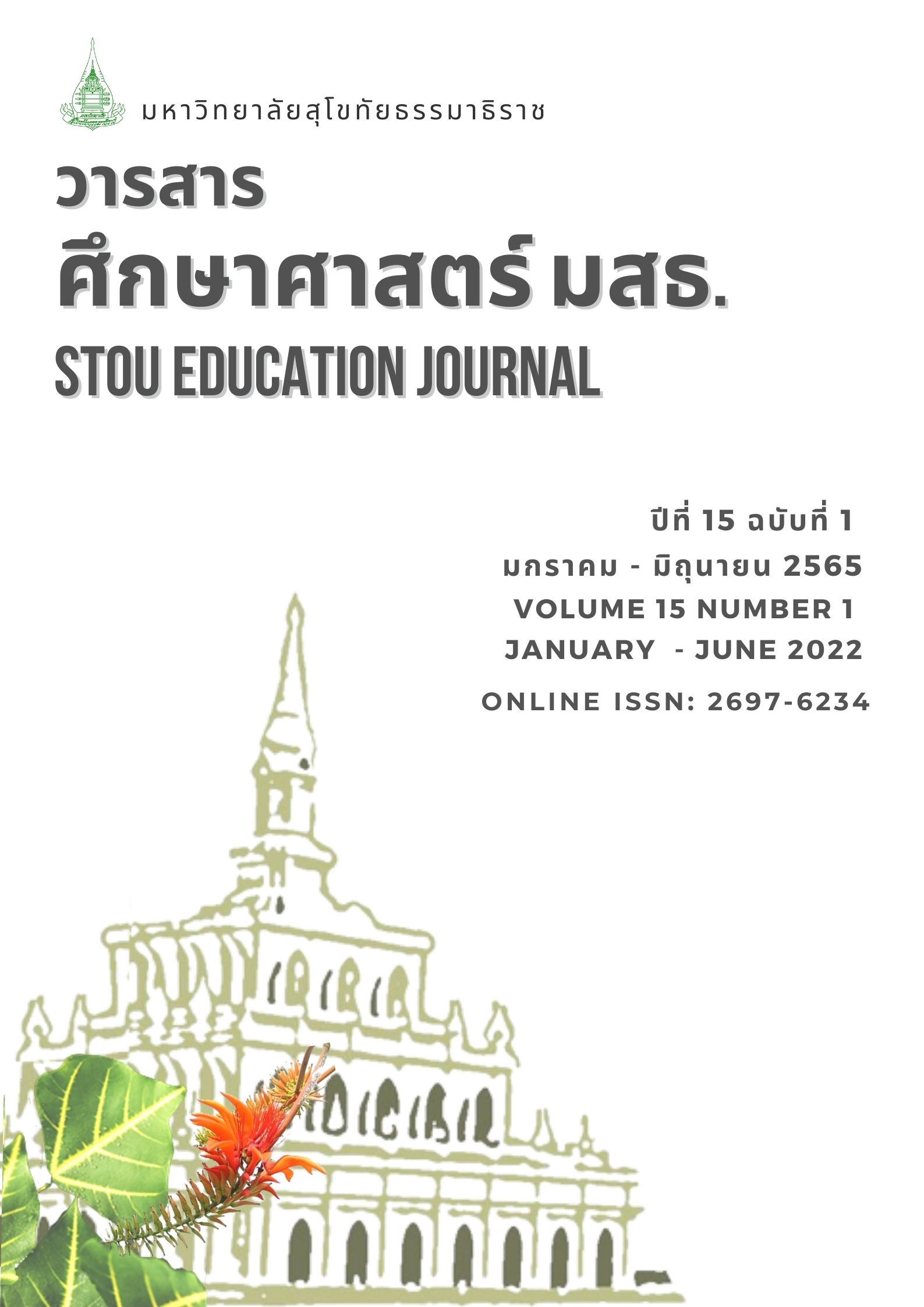The Development of Measurement and Evaluation of Competency According to Thai Qualifications Framework for Higher Education with Application of the Empowerment Evaluation for Instructors in Thailand National Sports University
Main Article Content
Abstract
The purposes of this study were to 1) develop the model of measurement and evaluation competency development according to Thai Qualifications Framework for Higher Education with application of the empowerment evaluation for instructors in Thailand National Sports University and 2) assess the results of the development of measurement and evaluation competency according to Thai Qualifications Framework for Higher Education. The research was divided into 2 phases. Phase 1 was carried out to develop the model of measurement and evaluation competency development by reviewing related literature and surveying needs, then, the results were used to draft the model that was then given to experts in measurement and evaluation requiring them to assess quality of research instruments that included questionnaires, a test and an evaluation form. Statistics used to analyze data included frequency, percentage, median and PNImodified. Phase 2 was conducted to assess the results of the development of measurement and evaluation competency that was piloted with instructors of Thailand National Sports University. The instruments comprised a model of measurement and evaluation competency development, a cognitive assessment, a skills assessment, and a personality assessment. Data was analyzed through frequency, percentage, mean, standard deviation, t-test, and content analysis. Findings revealed that 1) the model of measurement and evaluation competency development consisted of 5 components: (1) principles of model, (2) purpose of model, (3) system and mechanism of model, (4) model implementation, and (5) model evaluation; and 2) according to the effectiveness of the model, it was indicated that instructors’ knowledge and understanding, skills and personal attributes in measurement and evaluation competency, after applying the model, were statistically higher than those before applying the model at .01, and skills in measurement and evaluation of learning outcomes were at good level.
Article Details
References
กัญญนันทน์ ยุกต์แผน. (2552). รูปแบบการพัฒนาอาจารย์ในมหาวิทยาลัยเอกชนไทย [วิทยานิพนธ์ปรัชญาดุษฎีบัณฑิต ไม่ได้ตีพิมพ์]. มหาวิทยาลัยสยาม.
สำนักงานคณะกรรมการการอุดมศึกษา. (2552). กรอบมาตรฐานคุณวุฒิระดับอุดมศึกษาแห่งชาติ พ.ศ. 2552. [เอกสารที่ไม่ได้ตีพิมพ์].
ทรงศรี ชำนาญกิจ. (2559). การศึกษาความรู้ความเข้าใจและพฤติกรรมการวัดและประเมินผลการศึกษาตามกรอบมาตรฐานคุณวุฒิระดับอุดมศึกษาแห่งชาติของคณาจารย์ มหาวิทยาลัยราชภัฏสุราษฎร์ธานี. [เอกสารที่ไม่ได้ตีพิมพ์].
ธีระ รุญเจริญ. (2550). ความเป็นมืออาชีพในการจัดและบริหารการศึกษายุคปฏิรูปการศึกษา. แอล.ที.เพรส.
ไพฑูรย์ สินลารัตน์. (2559). คิดเพื่อครู : คำบรรยายระหว่างดำรงตำแหน่งประธานกรรมการคุรุสภาพ. วิทยาลัยครุศาสตร์มหาวิทยาลัยธุรกิจบัณฑิตย์.
สมคิด พรมจุ้ย. (2552). เทคนิคการประเมินโครงการ (พิมพ์ครั้งที่ 6). จตุพรดีไซน์.
สุนทรา โตบัว. (2561). การพัฒนาแนวทางการประเมินการเรียนรู้ด้วยการวิจัยเป็นฐาน เพื่อสร้างเสริมความสามารถตามกรอบมาตรฐานคุณวุฒิระดับอุดมศึกษาของนิสิตบัณฑิตศึกษา. วารสารวิจัยและพัฒนาหลักสูตร, 8(1), 92-109.
Fetterman, D. M. (1996). Empowerment evaluation : Introduction to theory and pratice. In D. M. Ftterman, S. J. Kaftarian, and A. Wandersman, (Eds). Empowerment evaluation: Knowledge and tools for self–assessment & accountability. Sage.
Fetterman, D. M. & Wandersman, A. (2007). Empowerment evaluation: yesterday, today, and tomorrow. American Journal of Evaluation, 28(2), 179-198.
Joyce, B. & Weil, M. (1992). Models of teaching (4th ed.). Allyn and Bacon.
Patton, M. Q. (2005). Toward distinguishing empowerment evaluation and placing it in a large context : Take two. American Journal of Evaluation, 26(3), 408-414.
Wandersman, A., Snell-Johns, J., Lentz, B. E., Fetterman, D. M., Keener, D. C., Livet, M., Imm, P. S., & Flaspohler, P. (2005). The principles of empowerment evaluation. In D. M. Fetterman & A. Wandersman (Eds.), Empowerment evaluation principles in practice (pp. 27–41). Guilford Press.


